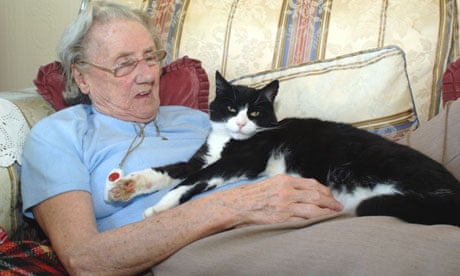Whatever happens to the funding of long-term care in response to the recent Dilnot review, and the signs are that any reform will not come soon, there is general agreement that more could and should be done now to help older people stay longer in their own homes. But practical support is often hard to find.
An inquiry reported this week that although there is overwhelming evidence that a usually small investment in aids and adaptations to people's homes can save much greater sums in health and social care, examples of such interventions remain all too rare.
Use of telecare is a case in point. Investment by councils in this remote monitoring technology is "very patchy" despite its proven value, according to the inquiry by the all-party parliamentary group on housing and care for older people. In one evaluation, in North Yorkshire, annual savings were calculated at an average £3,600 for each user.
Councils' slowness in exploiting the potential of telecare has been a cause of great frustration to Alan Long, executive director of Mears Group, which provides both housing maintenance and home care services to local authorities. As a result, he has come up with an innovative offer to councils to take on the cost of installing the technology in return for a share of the savings he confidently expects to see materialise. And he now has his first pilot project on the stocks.
In the next few weeks, a group of at least 50 older people receiving home care in Hertfordshire will be selected to have telecare equipment installed in their homes by Mears. Sensors will monitor movement to detect falls and attempts to leave the house, especially important where someone may have dementia, and will sound the alert if medication is not taken at the right time from a special dispenser. The value of each package will run up to about £1,000, with the council paying nothing up front.
"I'm keen to promote telecare, but sometimes you struggle a bit to convince frontline staff to roll out something in a big way when they have not got the confidence that it will work," says Sarah Pickup, Hertfordshire county council's director of adult care services. "This is an interesting opportunity that might work, or might fail, but we are going to give it a try – and there is no risk from a client point of view."
Results of the pilot will be monitored over 12 months against a control group of older people of equivalent needs who will not benefit from the technology. If, as anticipated, the control group incurs higher social care costs, the difference will be marked down as telecare savings. Mears is budgeting for average savings of £500 per person, which will pay for the equipment, and anything above that will be split 50-50 with the council.
"I've got no proof of this whatsoever," says Long. "But it's got to be the right thing to do. The only party who can lose out, if I am wrong, is the company."
Assessment of the pilot will not take account of savings to the NHS. Although Long would have liked it to do so, he did not want to delay the trial while he sought to engage a health service agency. But he thinks a three-way arrangement is the logical next step and believes the approach – which is based on Mears's "price per property" housing maintenance contracts, involving a single annual payment irrespective of the volume of repairs – can transform the way private service contractors work with public services agencies.
"It changes the culture of the relationship with the local authority," Long says. "We are just much more efficient and we don't have the daily battles [over costs] we had before."
Pickup sees things similarly. "We have to try these new ways of working," she says. "We've got to get away from confrontational relationships with providers. We have to have relationships that deliver change."
This week's inquiry report underscores her message, calling for fresh and radical thinking about meeting the housing and care needs of older people. Lord Best, the housing expert and crossbench peer who led the probe, says he and his colleagues were shocked by some of the evidence they heard. In one case, a woman had described how her husband had been unable to get upstairs in their house for two years since his discharge from hospital, for want of a stairlift. She was worn out from struggling to care for him in their living rooms.
"If they both end up in hospital, and I hope to goodness they don't, that's £340 a night for each of them," says Best. "Ten days of that and you could have paid for two stairlifts."
The inquiry's recommendations include a "clear requirement" that housing issues are included in the remit of the local health and wellbeing boards proposed for England in the health bill. Best says he will be seeking assurances from ministers on this specifically and on the government's willingness generally "to grasp this opportunity and be the catalyst for changing the way we think and plan to meet the housing needs and expectations of an ageing population".

Comments (…)
Sign in or create your Guardian account to join the discussion